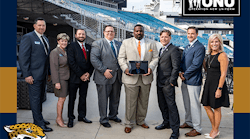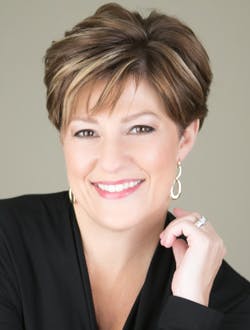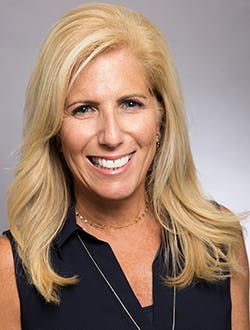Operation New Uniform, founded in 2014, has established itself as a trendsetter in the veteran service organization space. The mission of the organization is to ensure all U.S. Veterans have a successful transition after service by treating each Veteran as an individual, serving as many Veterans as possible without reducing quality, and meticulously tracking the results and successes of our Veterans.
Plant Services editors Thomas Wilk and Anna Townshend recently had the chance to talk with co-founder and executive director Michele McManamon and Dr. Kim Bynum, ONU’s director of Veteran training and transition, about what it takes to graduate more than 350 alums from the program, and the skill sets possessed by Veterans that impress employers in industry.
PS: Can you tell our readers who may not be aware of Operation New Uniform, what are some of the goals for the organization? And how is it setting trends, specifically for veteran service organizations?
MM: Sure, I think the main thing is understanding what Operation New Uniform does for our nation’s Veterans. Most often people hear that name and they think we need them to donate suits, but Operation New Uniform actually equips Veterans with the training they need to successfully find their post-military career.
There’s a lot of confusion out there, as far as what our veterans are looking for when they get out, and there’s a lot of confusion on their part on what they really want to do. We say, “what do you want to be when you grow up?” Because some have served for just a few years, and some have served for multiple years, and are figuring out if they want to do the same thing they’ve done while they were in the military, or if they want to do something totally different.
Our organization really helps with this mindset. We also focus on careers, not jobs. Most organizations are looking to just help Veterans get a job, or introduce them to people to help get them a job. We’re looking to help you get that next career, and that’s why partnerships with Plant Services help to identify great opportunities that are available, opportunities available for our veterans. We love to partner with folks like you guys.
Kim Bynum
PS: This reminds me of a friend who was in the first Gulf War in the U.S. Army Signal Corps, who was a helicopter tech specifically, and he ended up doing maintenance and reliability work once he transitioned out of the army. How long does each new class in the ONU program spend in the program? And how specifically does ONU work with employers to connect those workers with the right jobs?
KB: The course actually lasts two and a half weeks, from 8:30 to 3:30. And we attend class every other day because we want that day in-between to allow time for that self-reflection and also for some homework and activities that we’re asking them to do.
I will tell you that for Operation New Uniform, not everybody that’s served by ONU goes through the actual course. So, we’ve got folks that will call into us, and they’ll need a specific resource or they’ll just need a little help with their resume, so we try to plug them in wherever they’re at.
The course, though, allows for those that are really looking to spend time and make that mental transition and be really reflective and serious about the mental work to help people prepare so that it’s a smooth ride, and not just a stutter step until they finally figure it out. (And I kind of speak from my own experience there.)
Like Michele said, we cannot do this without partnerships, and we are so blessed that the business community has just really embraced and understands the value of a veteran as an employee, what they bring to the table. How we do that is really just through our own networking and building our own relationships within the business community, so that they are aware that we have these candidates. We also partner with other folks that have candidates, so we can provide that steady stream of talent to them, and also to bridge the gap that I’m sure your audience is aware of.
Michele McManamon
Sometimes it’s hard to translate that helicopter mechanic blowing up tanks in the Gulf War to how is that going to add value to you over here at Google or IBM or Amazon. And so, bridging that gap, we try to do that on the employer side as well. We’re helping the veterans be able to articulate what they’re doing, and then helping the employers to give a little bit of grace and how to maybe dig out that information that they’re looking for. It’s been a great partnership.
MM: Kim mentioned that it’s a two-and-a-half-week program, and that’s just scratching the surface. When we first communicate with the veteran who’s looking to come through our program, it could be months before our program actually starts and they’re part of our ONU family. They graduate from our program, and they continue and we tell them it’s for a lifetime they are with us (I don’t know whose lifetime, theirs or ours).
Sometimes they go through multiple transitions and we’re always there, so they know they have this extended cohort, they have this extended family like they had in the military, someone they can depend on and rely on to always reach out to us. As an example, we had an alumni event last night, and there were 75 of our alumni and resource partners from town that all came together to support them. So, it doesn’t ever end. We’re there for a lifetime.
PS: Can you talk a little bit about what skills and attitudes veterans have gained from their time in the military that will help them in the manufacturing world?
MM: I’ll kick that off, and then I’m going to throw it over to Kim because she is a 21-year Navy veteran and an amazing person, I just love having her on my team. You know, she might be 4-foot-nothing but she is mighty and can kick your butt, so for all of you maintenance and reliability, folks, she’s the one to talk to.
The basis of our training started originally with a franchise my husband and I own here in Northeast Florida called Sandler Training. We help businesses and companies and individuals to learn how to sell more effectively, leadership skills, that type of thing. So, we took that training system, the Sandler Training System, which is a worldwide training system and I called the owner Dave Mattson in Baltimore and said, “Hey, would you be willing to donate all your copyrighted material so we can train veterans on how to sell themselves?” And he said, “Absolutely, it’s yours, Michele, whatever you want to do.”
Next steps forward: New skills and careers for veterans
Proactive leadership: Crisis-ready organizations need strong foundations
3 tips to improve your leadership skills
And we did, we took that curriculum and massaged it and made it this two-and-a-half-week program to be able to really focus on attitude, behavior, and technique. On how to get that career, how to communicate to the business community, how to translate what they’ve done to be able to do what you need to do to be able to get that career, and maintain it and love it. That’s where the basis of this stuff comes from.
From the perspective of our veterans, Kim, do you want to talk about that?
KB: It’s a great question that you asked because my own experience through my transition and then watching thousands of veterans, and trying to help guide them through their journey, what I’ve found and what I experienced is we don’t understand or we underestimate the value that military experience has brought to us as a human being.
Talking to employers, what we found is they’re really excited about the fact that our veterans are able to lead and be on a team with incredibly diverse populations because that’s what we do in the military, and there’s no room for issues. It doesn’t matter, boy, girl, black, white, whatever religion, you could have somebody from Louisiana, and then somebody from New York, and we’re doing it, get it done, right? There are soft skills that we sometimes took for granted in the military of adaptability and resilience, when there’s no option to not get it done—you have to be a creative problem-solver. Those types of things that we did through our military career, we don’t realize how valuable that is out to the business community.
Even just simple things like the integrity and the commitment to show up every day and give 110%, that’s just been instilled as a culture and value for the military, and we bring that to the employers. I believe that that’s why employers are so excited about partnering with organizations like Operation New Uniform because they know the innate value that every veteran brings to the table, whether or not that veteran actually realizes it about themselves or not.
Sometimes they’ll say to me, “Well, all I did in the military was X, Y, Z, and, you know, nobody’s going to understand that I was a search and rescue helicopter guy making sure if any helicopter went down, I would save their lives.” That’s a pretty big deal, but mentally we’re just like, “Yeah, that’s no big deal, that’s just what I did.”


